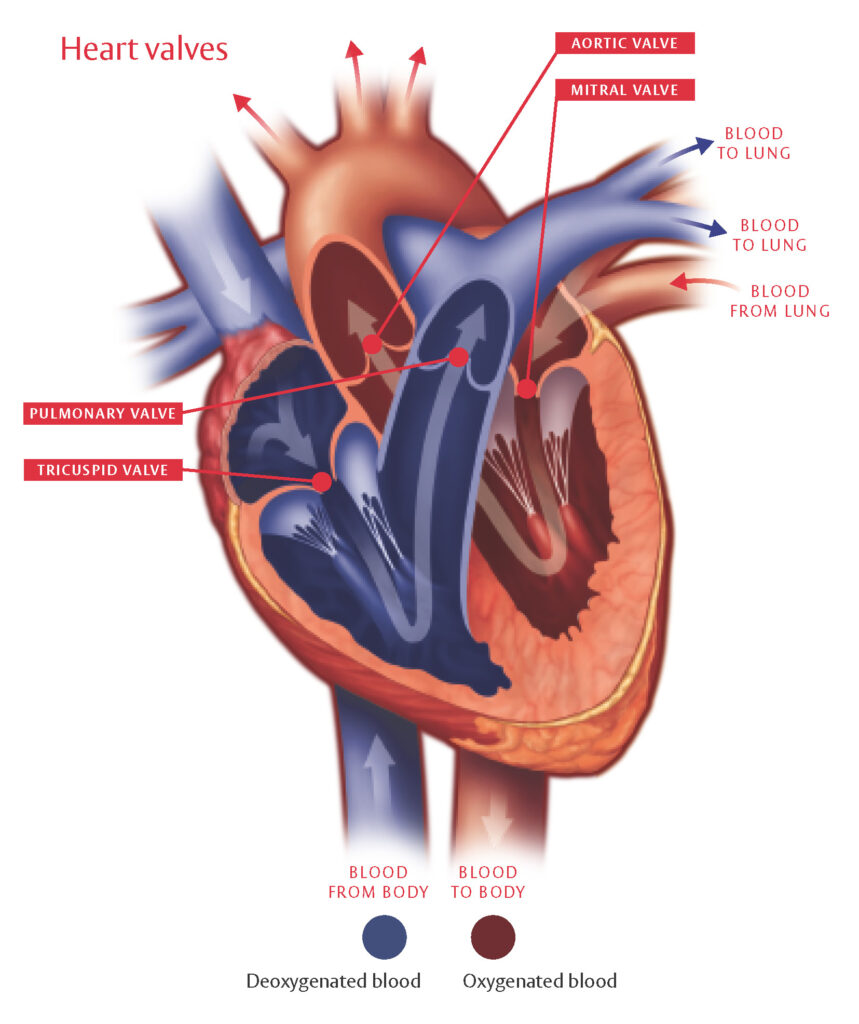Heart Murmur Heart Valve Disease

What can cause heart murmurs?
The first thing that surprised me was that heart valve disease, which causes heart murmurs, is common in people of my age – I’m 76 by the way.1 I knew that the heart has four chambers that pump blood. However, I didn’t know that the two chambers on the right side of the heart pump blood to the lungs, while the two on the left pump blood to the rest of the body. It’s fascinating to know that the heart also has four valves, which help it to work efficiently by ensuring that the blood always flows in the right direction.

Why do I have heart valve disease?
In some of us, our heart valves can become leaky, or don’t open fully. It can be something you are born with, it might be common in your family, or can be caused by other things like infection or inflammation. Sometimes, it can just develop over the years.
There are several different types of heart valve disease, but whichever one it is, blood flow through the valve isn’t as it should be. This means the heart has to work harder, and explains why I was out of breath a lot, and kept feeling dizzy.

Can heart valve disease be treated?
What has helped me to feel more positive was learning that heart valve disease can be treated. The key is to trust the experts. They really do have our best interests at heart. Please keep your appointment with your cardiologist, as the cardiologist specialises in treating heart problems.
So you have a heart murmur?
How will you get the treatment you need?
General Practitioner = If you are feeling unwell, you should visit your doctor. If your doctor suspects you have a heart murmur, you will be referred to a heart specialist – the cardiologist. .
General Cardiologist = The cardiologist will perform some more tests on your heart to decide which of your heart valves is not working well. This will help to determine what is causing your heart murmur. You will also be able to talk available with the cardiologist. about the different treatment options
Heart Team = If it is necessary, your cardiologist will refer you to the heart team. This multidisciplinary team of specialists will discuss the most suitable options of intervention with you.

What about my appointment with the cardiologist?
When I went to my appointment, the cardiologist ran some tests to assess my heart rhythm. I also had an ‘echocardiogram’, which is an ultrasound scan of the heart, to see how well the blood flows through the different parts of my heart. At your appointment, I am sure your cardiologist will explain which tests you need. You will also be able to ask any questions about your heart valve condition and possible treatment options. Meeting the cardiologist really helped me to understand my condition. It reassured me that heart valve disease can be managed and now I understand what we should do next. I’ve also been able to explain all this to my family, which has made me feel much happier, as they have been worried about me.
Key things to remember
- Heart valve disease can cause heart murmurs and is common
- There are several different treatments available
- See your cardiologist to discuss the best options available for you
References
1. Joint Task Force on the Management of Valvular Heart Disease of the European Society of cardiology (ESC); European Association for Cardio-Thoracic Surgery (EACTS), Vahanian A, Alfieri O, Andreotti F et al. Guidelines on the management of valvular heart disease (version 2012). Eur Heart J 2012;33:2451–96.
2. British Heart Foundation website, accessed 16.11.2016. https://www.bhf.org.uk/heart-health/conditions/heart-valve-disease
3. Carabello BA. Introduction to aortic stenosis. Circ Res 2013;113:179–85.
4. Mayo Clinic Staff. www.mayoclinic.com.<http://www.mayoclinic.org/diseases-conditions/aortic-stenosis/basics/symptoms/con-20026329>

